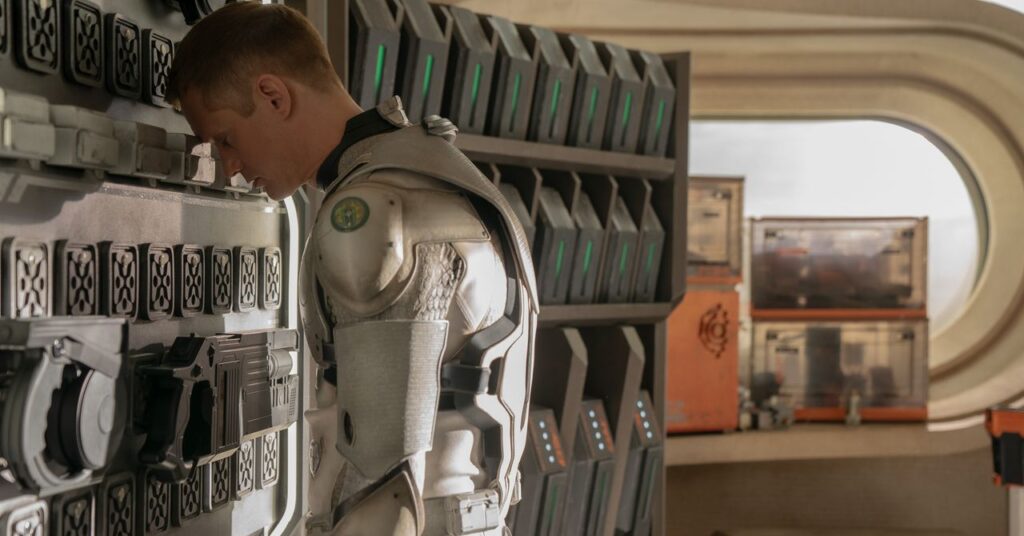
A confession: This dispatch comes from a recent convert to Martha Wells’ acclaimed series, The Murderbot Diaries. Drawn in by a compelling 2024 profile of the author by my colleague Meghan Herbst, I was intrigued by the casting of Alexander Skarsgård as the titular character in Apple TV+’s adaptation. Known for his roles as the vampire Eric Northman in True Blood and a fierce prince in The Northman, Skarsgård seemed an unusual choice to portray a socially awkward security robot, or SecUnit, that has hacked its own “governor module” to gain autonomy.
After viewing the initial episodes of the show, which premieres Friday on Apple TV+, I found myself with more questions than answers. Chief among them: Why does Skarsgård feel both miscast and perfectly suited for this role? Why is Mensah, played by Noma Dumezweni, portrayed so differently from her book counterpart? And why does the overall tone of the series feel off?
The Challenges of Adaptation
The adaptation of Wells’ series into a television format brings with it the inherent challenges of translating beloved literature to the screen. Wells’ books, celebrated with Hugo and Nebula awards, have garnered a dedicated fanbase. This fanbase, much like those of George R.R. Martin or Hugh Howey, holds strong opinions and high expectations for adaptations of their favorite works.
“Readers love Wells’ books. They’ve won Hugos and Nebulas, the highest praise bestowed on science fiction writing.”
The core of The Murderbot Diaries is its unique narrative voice. Murderbot, the character, narrates All Systems Red and the series, providing a distinct tone that resonates with readers. Its struggle to interact with humans while hiding its newfound autonomy is central to the story. The adaptation attempts to capture this, but the execution leaves much to be desired.
Characterization and Tone
One of the most significant departures from the source material is the portrayal of key characters. In the books, Mensah is a confident leader of an extraterrestrial expedition. Onscreen, however, she is depicted as anxious and unsure. Similarly, the PreservationAux crew, rather than being well-rounded individuals, are reduced to quirky stereotypes. This shift in characterization impacts the overall tone of the series.
The adaptation also introduces unnecessary plot elements, such as turning polyamory, a normalized aspect in the books, into a dramatic subplot. This attempt to add complexity detracts from the core narrative and feels forced.
The Role of Skarsgård
Alexander Skarsgård’s portrayal of Murderbot is another point of contention. His previous roles as intense, larger-than-life characters contrast sharply with the nuanced, socially awkward SecUnit. Yet, there are moments where his performance captures the essence of Murderbot’s internal struggle, making his casting both puzzling and intriguing.
Looking Forward
As the series unfolds, it remains to be seen whether it will find its footing. The adaptation’s success will depend on its ability to balance fidelity to the source material with the demands of television storytelling. Fans of the books will be watching closely, hoping for a faithful representation of Wells’ work.
Ultimately, the adaptation of The Murderbot Diaries serves as a reminder of the challenges inherent in bringing beloved literature to the screen. While the series may not fully capture the tone of Wells’ work, it offers an opportunity for new audiences to discover the world of Murderbot.





